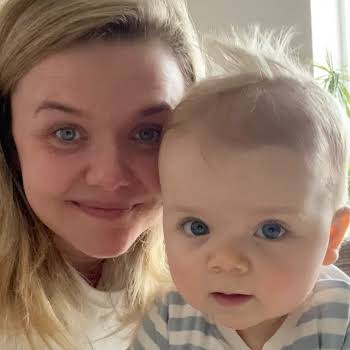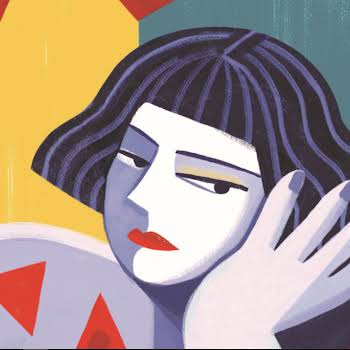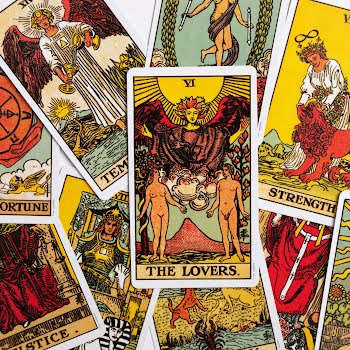
By IMAGE
23rd Sep 2020
23rd Sep 2020
For so long, calling someone hormonal has been seen as a gendered insult. It’s time to break the stigma and redefine it writes Emily Horgan, co-editor and curator of So Hormonal, a collection of essays on hormones.
The notion that hormones only impact women has been deeply ingrained in our society, so much so that the expression ‘so hormonal’ is automatically associated with women’s behaviour. Our obsession with gendering hormones is problematic at best, and life-threatening at worst. For some, being seen as ‘hormonal’ is equivalent to being seen as ‘difficult’ or ‘emotional’. And while this is a frustrating part of being a person who presents as female, the reality of stigma around hormones can be much more nefarious.
The impact of gendering hormones
Like the majority of systems we live in, hormonal healthcare can act as an oppressive force to many. The inherent racism and misogyny that underpin many of the treatments we have for hormonal issues today linger, meaning our access to proper care is defined by factors such as the way we present ourselves, our race, and our class.
And like many issues that find their roots in patriarchal structures, men suffer from it too. The stigma around discussions of male fertility, steroid use, and chronic illness can be detrimental to the mental and physical health of the men in our society.
Speaking up
In February, my partner and I worked with the publishing house, Monstrous Regiment, to create a collection of essays that gave a snapshot of how folks live with their hormones. Our hope was to give a platform to the different ways hormones impacted others’ lives. We were somewhat aware of the different hormonal conditions that we wanted to platform – endometriosis, PMS and PMDD, chronic stress, fertility in all genders, and some others.
What we received was over 85 pitches from writers of different genders, backgrounds, and nationalities, all willing to put their hormones out there for the world to see, and we learned so much from their stories
After a successful crowdfunding campaign and a difficult selection process, we paid 35 writers to share their personal narratives in 3000 words or less. And what came out of this is a beautiful, diverse collection of essays that expose hormones for what they truly are – complex, non-discriminatory, and impactful. As the essay ‘Telling Hormonal Stories’ by researchers Sonja Erikainen, Andrea Ford, Roslyn Malcolm, and Lisa Raeder puts it, ‘Hormones are characters in stories that can be both empowering and oppressive, plural and diverse, sometimes inconsistent with each other, and often vague and fragmented’.
The content itself ranges from discussions of sex drive during the menopause to trans healthcare and transitioning, from baby loss and fertility to chronic illness. Its purpose is to resonate with and challenge each reader.
Misunderstood
Some authors spoke about how the effect of hormones led to other conditions, like ADHD, being undiagnosed for years. In her essay, writer Donna Alexander says ‘My parents would often say something to the effect of “Don’t mind her. Her hormones are at her”. This entrenched the idea that my hormones were to blame for everything that made me feel weak, misunderstood, and unlovable. I can’t remember exactly what I imagined a hormone to be back then, but I remember my parents explaining them as things that “make women go mad”.’
Another essay touches on puberty, and how difficult it can feel as a young person to be taken seriously by the adults in their life, including healthcare professionals. Cathy Naughton writes ‘I have experienced, and noticed among peers, how young people’s concerns are frequently dismissed as fleeting and therefore invalid, despite the fact that young people are experiencing constant waves of change both internally and externally that influence their views of themselves, their worlds, and their futures. “Teenage hormones” is a cliche that is dismissive of the vast complexity of biological and chemical changes that young people experience for years following the onset of puberty’.
Fertility
Another major topic covered by the book is fertility, with perspectives from both male and female authors. In her essay ‘Let’s Make a Baby (With Science)’, Erica Gillingham writes about her ongoing experience with IVF, and the ways she and her partner managed the process together. She writes ‘We believed we’d thought through every possible scenario as far as we could imagine. Once we made it through the clinic doors and agreed to our chosen starting point, though, one glaring omission in our lists of questions and answers became clear: hormones. What hormones would be required, how would they get into my body, and what would they do to it?’
Meanwhile, Tyler Christie speaks openly on the topic of male fertility, the reality of conceiving, and the importance of men stepping up to understand and care for their fertility health. ‘I realised that fertility, unlike work or education, is something you can’t just solve by trying harder. And I realised that getting pregnant and having a healthy pregnancy and newborn child are really hard for a lot of people.… The accepted societal view that conception and pregnancy are “easy” meant we were deeply unprepared.’
Inclusive healthcare
A common theme throughout the book is the need to both break societal stigma and challenge the healthcare system to be more inclusive for all. Jo Ross-Barrett ends their essay with a passionate plea to the healthcare system as a whole:
‘Transgender, non-binary and intersex people need your help. Many of us cannot afford private healthcare, so you are quite literally our only hope. Please do better by us: take us seriously, respect our agency, give us the information we need to make decisions about our own bodies, and don’t waste months or years of our lives with ignorance and gatekeeping.’
And Annabel Sowemimo writes on the roots of racial discrimination in medical practices – ‘Medicine has historically (less so more recently) been male dominated, with few black and brown people in senior positions. Why does this matter? Because research agendas are not solely driven by need but by our own implicit biases, and often seek to meet the needs of those deemed “normal”. By default, conditions that affect under-represented groups have a history of being neglected’.
We are all hormonal
The evidence is clear – we are all hormonal beings, with intersections, needs, and complexity. Our collection is just a drop in the ocean of the variety of experiences that folks have with their hormones. When we begin to see and understand that vast array, we begin to realise that if someone calls you ‘hormonal’, they’re really just calling you human. One of the things that we most want readers to take away with them is that it’s time to redefine how we think about hormones and bring this often hidden topic out into the open where it belongs.
So Hormonal as a collection moved the conversation on hormones to a public and permanent forum. Now we want you to continue it.
Buy So Hormonal now for £11.99 from selected independent bookstores or online.






















